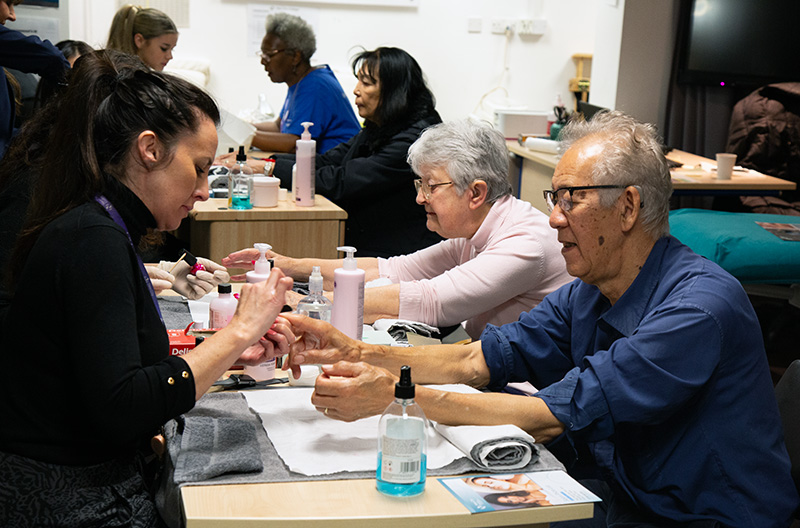Thousands more school and sixth form places to be created

Thousands of new school places will be created for children in England, including for those who are living in disadvantaged areas, have special educational needs and disabilities (SEND), or require alternative provision.
The government’s 55 Education Investment Areas, the local authorities where outcomes for pupils are currently weakest, will be prioritised for up to 15 new mainstream free schools. This will include a targeted number of high-quality, standalone sixth forms, designed to help children from disadvantaged backgrounds fulfil their potential.
The first of the new wave of up to 60 special and alternative provision free schools will begin opening from September 2025, creating approximately 4,500 new places, and boosting choice for parents.
The new alternative provision (AP) schools will help keep those who have been excluded, or are at risk of exclusion, engaged with their education, as well as offering more behaviour and mental health support.
These school places build on commitments set out in the government’s recent education reforms, including the Schools and Levelling Up White Papers and the SEND and AP Green Paper, which aim to radically raise the national average attainment in English and maths, with investment and energy focused in areas of the country previously left behind, and to end the postcode lottery in the SEND system.
Through these reforms every young person will be supported to gain the education and skills they need to get a good job and help the economy to continue growing.
Education Secretary Nadhim Zahawi said:
“All children have the right to a high-quality education. Parents should feel confident that their local school works for their child, no matter where they live or their ability.
“From mainstream education which can provide for every need, to specialist teachers and equipment in tailored settings, our new schools across the country will continue to make sure that every child, in every corner of the country, gets the support they need to succeed.”
Special schools will offer specialist support and education for pupils with needs such as autism, severe learning difficulties or social emotional and mental health conditions. The schools can be built to be more accessible, including with specialist fixtures like ceiling hoists and wheelchair ramps, or acoustically adapted classrooms.
The government is making sure that talented children from disadvantaged backgrounds have access to a college, school sixth form or 16-19 academy, with a track record of progress on to leading universities, such as Harris Westminster Sixth Form and Sir Isaac Newton Sixth Form Free School in Norwich.
The new special and AP free school waves come as Government consult on ambitious proposals for a more inclusive, consistent, transparent and accountable system for children and young people with special educational needs and disabilities (SEND), and for those who require alternative provision.
Part of a £2.6 billion investment of funding for more specialist places and support for children with SEND and who will benefit from AP over three years, the special and AP free school waves follow continued increased investment in local authority high needs funding, worth £9.1 billion overall for 2022-23.
Sector Response
Julie McCulloch, Director of Policy at the Association of School and College Leaders, said:
“While we welcome the creation of new school and sixth form places, we would urge the government against creating super-selective standalone sixth forms. Its press release gives this impression by saying that the aim is to open ‘academically focused’ 16 to 19 free schools to increase the number of disadvantaged young people progressing to top universities.
“As the Chair of the Social Mobility Commission, Katharine Birbalsingh, said on Thursday in her inaugural speech, social mobility should not be just about making elite pathways for a few but should work for a wider range of people.
“The danger of super-selective sixth forms is that they will simply take the most academically able young people from existing sixth form provision with consequent damage to those institutions and a demoralising impact on other young people who do not make the cut. The opportunity to progress to top universities is of obvious importance but so is progression to the many other universities, colleges, apprenticeship routes and wide variety of careers to which they lead.
“The government must recognise that public money should be spent on improving the prospects of all young people rather than creating a ladder of success for a lucky few.”
AoC responds to DfE announcement that “thousands more school and sixth form places to be created”.
David Hughes, chief executive of the Association of Colleges, said:
“Although there is a pressing need for more secondary and 16 to 19 places, there are better ways to create these places than setting-up new, small and highly-selective institutions for a minority of the population. There is no evidence that these areas suffer from poor quality 16 to 18 education currently, so it is difficult to see what these proposals are the solution to.
“Colleges already support students from all parts of society and help them progress to great outcomes. Colleges desperately need the capital funding to be able to support more students as the 16 to 19 population continues to grow.
“Despite this DfE last year turned down more than 50 college bids to grow 16 to 19 places and rejected more than 100 bids for colleges to upgrade their facilities in the latest capital transformation round.
“While any extra funding is welcome, the metrics DfE use to determine Education Investment Areas – primary and GCSE results data – are less relevant to performance by age 18. As the DfE does not publish 16-19 student number forecast data, there is a risk that this money could be allocated to the wrong places.”
Paul Whiteman, general secretary of school leaders’ union NAHT, said:
“Special schools and alternative provision schools are a vital part of the education system and so it is good to see the confirmation of this investment. It is important that the government continues to carefully monitor the demand for such specialist provision so that the needs of all pupils can be fully met across all areas of the country.
“Creating capacity to better support pupils with SEND is clearly welcome, but it should not be seen in isolation. Alongside this investment in new schools, there also needs to be investment in the crucial specialist services that support pupils in both mainstream and special schools, such as speech and language therapists and educational psychologists. Without early identification and intervention by the relevant specialist services then the benefits of these new places are at serious risk of being diluted.”
Dr Patrick Roach, General Secretary of the NASUWT-The Teachers’ Union, said:
“While additional school places in special, alternative and sixth-form provision are needed, an effective strategy for local school place planning is also required to ensure that the needs of all children and young people will be met now, and into the future.
“The Government must also come forward with the additional investment that is needed across the board for rebuilding and refurbishment of existing schools, many of which are in dire need of improvement.
“It is teachers who are key to raising educational standards, but the profession is suffering from excessive workloads, long working hours and low morale. Without a better deal for the profession on pay, workload and wellbeing the Government’s levelling up ambitions will not be achieved in practice.
“Levelling up for children and young people requires Government to focus on investing in the education workforce, rather than continuing to pursue policies weak on evidence that they will raise standards.”
Kevin Courtney, Joint General Secretary of the National Education Union, said:
“The Government’s approach to levelling up and improving educational outcomes for all pupils is woefully lacking and unambitious.
“Rather than look at seriously addressing the underlying causes of differing educational outcomes, the government has fallen back into its comfort zone of announcing more free schools.
“Where new schools are needed then they should be built, but decisions should be based on need with schools rooted in the local community. Sadly the government has removed the ability of local authorities to open new schools where they are needed, and at the same time cut funding for the improvements needed in existing schools. It would be extremely generous to describe this policy as giving with one hand and taking with the other, since very little is being offered, while much has been taken away.
“The free school programme is based on the damaging idea that increasing competition by opening a new school is the way to drive school improvement across an area. But in reality free schools have often had a damaging impact on local schools. Likewise, new selective sixth forms will increase inequality, not reduce it.
“Provision of support and education for children in Alternative Provision or special education is vital and there are huge problems with lack of capacity, funding and coordination. None of these problems will be solved with the opening of new free schools. A much more joined up approach, with the coordination of the local authority and local schools is needed. The principle should be to preserve and extend the excellent practice that exists in the state sector, rather than pretend that free schools have all the answers.”
Bill Watkin, Chief Executive of the Sixth Form Colleges Association, said:
“Sixth form colleges have an established track record of helping large numbers of young people from disadvantaged backgrounds to progress to leading universities. The growing population will result in a significant increase in sixth form student numbers and the government is right to help existing colleges to expand alongside establishing new sixth forms. However, it would not make sense, either educationally or financially, to open one of these new sixth form free schools in a community that is already well-served by high quality sixth form providers. It is vitally important there is an evidence-based and transparent process to approve these new sixth forms, and one that ensures they are only created in areas where there is a genuine need for additional provision and where they have a realistic prospect of long-term success.”












Responses